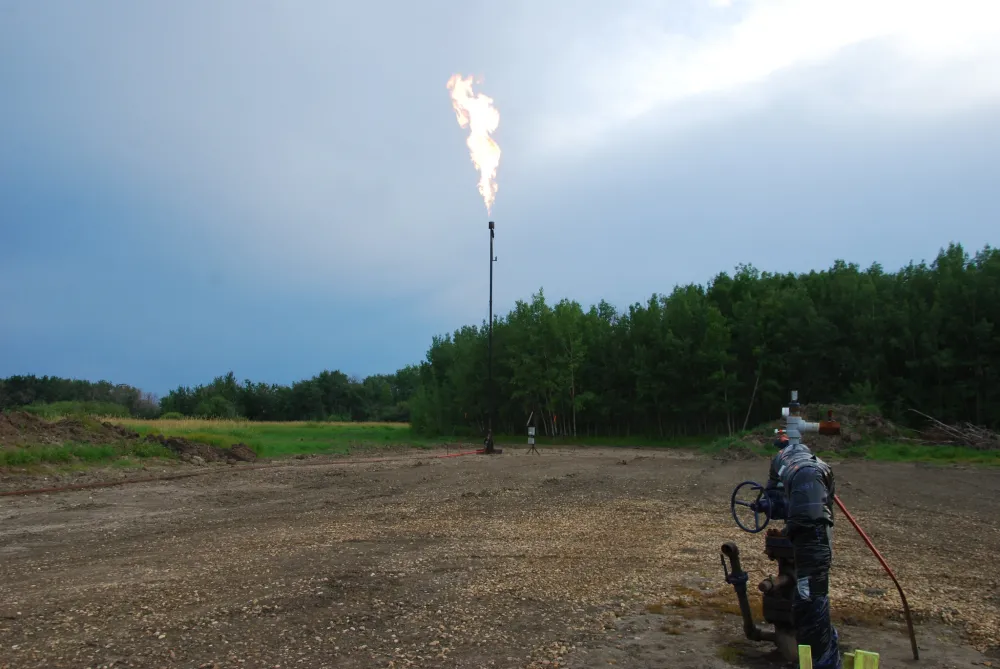
The B.C. Oil and Gas Methane Emissions Research Collaborative (MERC) has established a two-year plan to advance research on methane emissions from oil and gas activity. The joint initiative of industry, government, the regulator and non-profits supports B.C.’s methane emission reduction targets.
MERC’s 2019-2021 research plan will lead to recommendations on the design and implementation of key research deliverables necessary to meet methane reduction goals and to monitor the efficiency and effectiveness of B.C.’s methane regulations.
The provincial and federal governments have goals for reducing methane emissions from upstream oil and gas operations. The Government of B.C. has a reduction goal of 45 per cent by 2025, relative to 2014 levels, while the Government of Canada has a reduction target of 40-45 per cent by 2025, relative to 2012 levels.
The BC Oil and Gas Commission, the Ministry of Energy, Mines and Petroleum Resources, and the Climate Action Secretariat of the Ministry of Environment and Climate Change Strategy have developed methane emission regulations to meet the reduction targets, and to ensure they are equivalent to federal regulations.
The provincial regulations address the primary sources of methane emissions from B.C.'s upstream oil and gas industry, which are:
- Pneumatic devices, pumps, and compressor starters
- Equipment leaks
- Compressor seals
- Glycol dehydrators
- Storage tanks
- Surface casing vent flows
Methane is the main constituent of natural gas and has a 25 times greater global warming potential than carbon dioxide over a 100-year period. The oil and gas industry is estimated to produce approximately 17 per cent of total emissions in the provincial greenhouse gas inventory and is a large source of B.C. methane emissions.
“Under CleanBC, we committed to reducing methane emissions from upstream natural gas production 45 per cent by 2025,” said Bruce Ralston, Minister of Energy, Mines and Petroleum Resources. “That’s why we’ve brought in new, stronger regulations to address fugitive and venting emissions, improve leak detection and repair, and enhance data management and reporting requirements. Advancing research on methane is critical to monitoring the effectiveness of BC’s regulations and ensuring the province meets our climate goals.”
“As a founding member of BC MERC, the Commission is excited to see this significant milestone achieved,” said Ken Paulson, Executive Vice President and Chief Operating Officer of the BC Oil and Gas Commission. “This research plan is a product of a lot of collaboration and hard work from industry, government agencies, the environmental sector, academia and the regulator. It sets the stage to provide needed information for the methane emissions regulatory review scheduled for 2022.”
“Canada’s oil and natural gas industry is continuously finding better ways to reduce methane emissions from operations and B.C. is a world leader in this regard. In the very immediate-term, industry faces tough times due to the financial crisis caused by the COVID-19 pandemic. However, we remain committed to meeting the longer-term emissions reduction targets by 2025 and developing new technologies is critical to this effort. Our industry’s history of innovation and collaboration has steadily improved environmental performance while encouraging a strong energy sector capable of responsible growth,” said Terry Abel, CAPP Executive Vice-President, Canada Operations and Climate.
“The oil and natural gas sector has a long history of innovation and is pleased to be a part of this joint initiative among industry, government, the regulator and non-profits” said EPAC President Tristan Goodman. “We look forward to further collaboration on the identification and development of fit-forpurpose technologies to reduce methane emissions at the lowest cost.”
“Methane-reduction research is critical to hitting provincial reduction targets. The ideas and resources shared by Methane Emissions Research Collaborative members results in innovative solutions and more effective use of resources. The two-year plan fits well with Geoscience BC's existing and future projects to find innovative and practical ways to detect and reduce methane emissions,” said Carlos Salas, Geoscience BC Executive Vice President and Chief Scientific Officer.
“We are pleased to partner with other stakeholders to advance the collective understanding of methane emissions from B.C.’s gas sector. Through this research, we hope to fill knowledge gaps, identify additional cost-effective opportunities to reduce methane emissions, and ensure regulations are effective at reducing these emissions. Minimizing methane emissions is critical for reducing carbon pollution from the gas sector and for achieving B.C.’s climate goals,” said Karen Tam Wu, B.C. Director at the Pembina Institute.
Should you have any questions regarding this News Release, please contact any of the following individuals:
Lannea Parfitt
Manager, Communications
BC Oil and Gas Commission
250-980-6081
Lannea.Parfitt@bcogc.ca
Elisabeth Besson
Advisor, Media Relations
Canadian Association of Petroleum Producers
403-267-1179
Elisabeth.Besson@capp.ca
Tristan Goodman
President
Explorers and Producers Association of Canada
403-269-3454
tristan.goodman@explorersandproducers.ca
Richard Truman
Director, External Relations
Geoscience BC
604-662-4147
truman@geosciencebc.com
Stephen Hui
Senior Communications Lead
Pembina Institute
778-987-7654
stephenh@pembina.org




